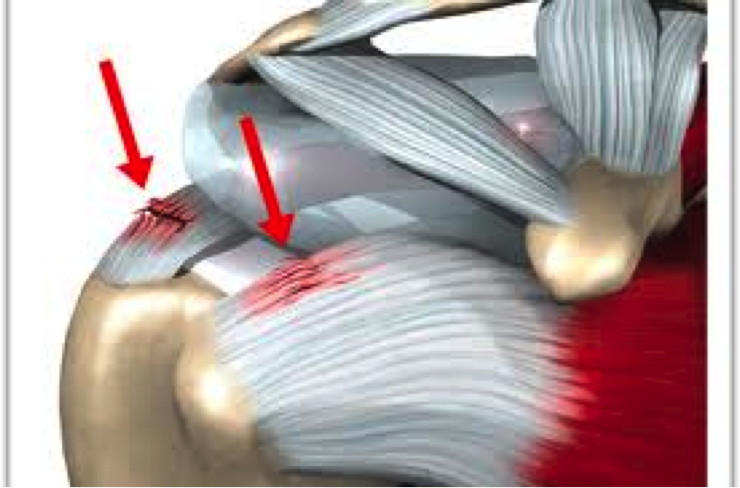Evidence demonstrates equal long term outcomes between Physical Therapy and surgery for non traumatic rotator cuff tears. Patient’s most appropriate for surgical repair include patients with larger tears, greater disability and limitations with arm use, and those with a low expectation for recovery with conservative care. Among those patients opting for surgical interventions up to 1 in 3 will have a re tear of their surgically repaired shoulder. The odds of re tearing the rotator cuff increase with age and greater numbers of rotator cuff tendon involvement. A recent study examined the impact of age on the risk of re tearing the rotator cuff repair.
Diebold and colleagues studied 1600 patients who underwent arthroscopic rotator cuff repair (JBJS. 2017). Patient underwent a diagnostic ultrasound at 6 months to determine the integrity of the cuff repair. 212 or 13% of patients had a retear at follow up, but the rate of retear was <5% in patients under 50 years old. The rate of re tear increased with each decade of life from 10% in patients aged 50-59 y.o. to 34% in patients > 80 years old. Consistent with prior research age was an independent risk factor for retear with significant risk in patients > 70 y.o.

